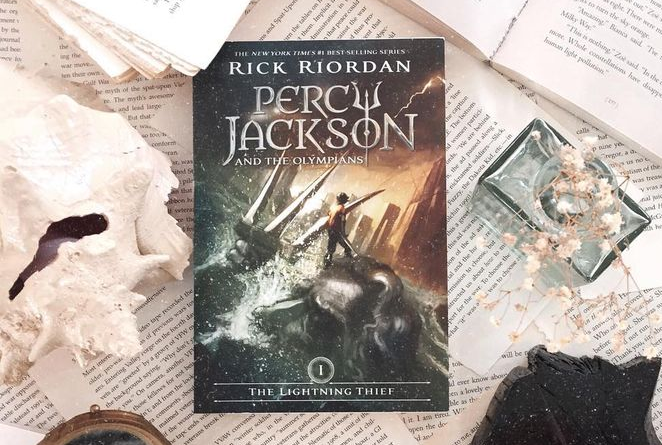In the young writing community, there’s a lot of pressure to be a prodigy.
Some of that can be good. It’s important to not be limited by your age or the expectations of older individuals around you. There are a lot of writers with a wealth of untapped talent because they believe they are too young to contribute anything valuable to the literary discussion. So many need to be encouraged to pull out a pen and just start writing, because it won’t happen on its own.
But sometimes that can backfire, leaving writers of all ages feeling inadequate because they didn’t publish their first novel at thirteen, launch an award-winning blog in high school, or make the New York Times Bestseller list as a teenager. The writers who did accomplish all that are rightly praised and upheld as icons of the writing world.
But if that isn’t you, if you’re afraid that every year that slips by you’re losing precious time to become a successful author, I want to take this article in a bit of an unusual direction to encourage you. And to do that, we’ll be exploring Percy Jackson and the Olympians.
Percy Jackson
For 12-year-old Percy Jackson, the Greek gods and goddesses of the ancient world aren’t just myths. They’re larger-than-life beings of incredible power.
And one of them is his father.
As the half-blood son of Poseidon, he isn’t supposed to exist. And his presence is already causing a few problems.
Poseidon’s brother, Zeus, is convinced that Percy stole his missing lightning bolt, a weapon of mass destructive power. In an instant, Percy is torn from his life in New York City and thrust into the whirlwind of political conflict between gods he didn’t even know were real a few days ago. And in a few days more, the gods will be at war unless Percy can find and return the missing lightning bolt.
Why You Shouldn’t Be a Prodigy
I loved the premise of Percy Jackson. While the first few pages had their flaws, I also saw incredible promise in the fascinating concepts the premise offered. But as time went on, very few of those concepts came to fruition in a meaningful way. The intriguing elements were hampered by a cluttered storyline deeply in need of a good trim. From an incoherent plot and poorly-defined characters, the Percy Jackson series had a rocky start.
The plot felt like a fragmented series of events without an overarching purpose, and the prophecies and mysterious aspects were predictable. It was no surprise that the boy with a draw toward the water turned out to be the forbidden son of Poseidon. And it took no effort to predict who the mysterious traitor would be at the end of the first book. Although I had committed to reading the entire series, between the typos and expository dialogue, I already started to regret it just a few chapters into the first book.
I made it through the second and began the third and — something shifted.
I still saw a lot of the same issues: the characters were lacking, the writing style was jumbled, but the storyline began to feel more coherent.
The fourth book was intriguing. The plot was much tighter, and the prophecies began to genuinely interest me. I found them much more difficult to predict, and the author began challenging the characters in interesting ways.
By the fifth book, there were almost no wasted words. The style had been elevated, the plot was tight, and the twists were genuinely difficult to predict. While it still had major issues, I saw real potential in its writing and actually found myself enjoying it.
When I finished the series, I was conflicted. I could see why so many liked it by the fifth book, but it made me wonder how different this series would be if the author had waited just a few years, and begun his writing career at the point where his writing style was at The Last Olympian.
Don’t get me wrong, it still has its issues. The female characters especially are often two-dimensional with basic (and glaring) flaws, and the romance felt inorganic. But if the series had started with the fifth book, it would have had the potential to surpass that with intriguing prophecies, an expanding world, and characters that deepen with further books.
But because Rick Riordan only reached that point in his writing skill at the end of the series, we never got to see that version of his books. Because he so enthusiastically sought publication for the first book when some serious editing and a bit of patience would have exponentially improved his work, we’ll never know what could have been.
The Percy Jackson series made one thing clear:
Don’t be a prodigy.
Don’t be a record-breaking writer.
Be the best author you can be.
What is going to make incredible storytelling (the kind that starts wars, sparks change, and remains a significant cultural icon throughout the test of time) is not winning an award for being the youngest writer. What makes incredible storytelling is an incredible storyteller, who has practiced their writing so much that crafting relatable characters, writing a coherent plot, and building astounding worlds has become second-nature to them.
And that is going to take time.
There’s no way around it.
By all means, crush personal goals, surpass your own expectations, and surprise the people around you. But don’t get so used to it that you confuse it with being a good writer. Excellent writers have waited their entire lives to produce one novel that changed everything. Prodigies have written bestsellers that were quickly forgotten. What makes a novel powerful is not how impressive the author’s bio is, but rather the quality of the work itself.
As writers, we’re not here to prove that we’re the youngest or most recognized writers. We’re here to change hearts and lives with thoughtful stories that contain true depth and meaning.
And if it takes two, three, five years to get there?
Who cares.
You have nothing to prove and everything to gain by honing your craft so that your debut novel is everything you dreamed it would be.
Percy Jackson showed real promise, with important messages that could have remained culturally significant for years if it hadn’t taken five books for them to appear. I will always wonder how different the books would be if Rick Riordan had waited just a few years before pursuing publication.
Don’t let your debut novel make your readers ask the same question.
Don’t be a prodigy.
Now go take the next step in making your current manuscript the best that it can be.



Let us know:
What did you think about the Percy Jackson series?


Hi! My name is Mara, and I’m a Christian artist, violinist, and blogger. I remember the day that I decided that I would learn something new about what makes a good story from every book I picked up — whether it was good, bad, or a mixture of both. I use this blog as a way of sharing some of the tips and tricks I’ve learned, and highlight which books, cartoons, and movies have taught me the most about writing an awesome story.


I never noticed the problems with the PJO series, personally. Perhaps it was because I read it pretty young, or because I spent way too much time laughing out loud. Either way, I kind of want to reread to see what the problems are.